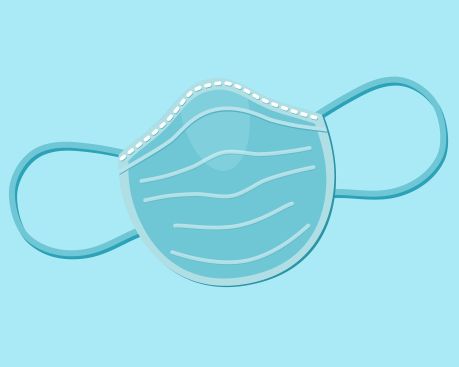Tips for Buying Face Masks

Medical personnel and ordinary citizens use face masks to protect themselves from contracting person-to-person transmitted infections in unavoidable close contact situations. People with colds and other respiratory illnesses also wear face masks to reduce the risk of spreading germs. Additionally, people wear face masks in cities to protect themselves from the ill effects of air pollution. Along with assuring comfort and breathing ease, the face mask design ensures that they can fit different facial sizes.
Tips for buying face masks
As it is essential to change the masks frequently and many are for single-use only, you may want to purchase bulk face masks. Here are some tips for buying them:
• Make sure that they have approval and clearance from the CDC, the NIOSH, and the FDA.
• Make sure that they are of electrostatic electret melt-blown cloth.
• Check that they have a soft interior and are 100% free of latex.
• Check that they have a Particulate Filtration Efficiency (PFE) marking.
• Inquire if they are fluid resistant.
• Inquire if they are dust resistant.
• Find out if they have staple-free straps or earloops for wearing convenience.
• Make sure that they don’t have any pressure points that would make it uncomfortable to wear them.
• Make sure that they are of a foldable design as that will make them convenient to store or to slip into pockets.
Some of the common types of face masks are:
Surgical masks
The principal purpose of surgical masks is to protect the wearer’s mouth and nose from droplets and liquids that might come their way when someone sneezes or coughs. That is why medical personnel commonly wear surgical masks while examining patients. The general public can also buy these bulk face masks and wear them for protection against contracting respiratory infections when out and about. However, the surgical masks cannot keep out microscopic, airborne particles.
The surgical masks are generally single-use, and you must discard them after using them for around two to four hours.
N95 respirators
N95 respirators are protective devices that fit tightly over the face. As they can block out around 95% of viruses and airborne particles, they are known as N95 respirators. They are available in different sizes and may have exhalation valves for air filtration and moisture removal. They are in high demand with medical professionals, especially during pandemics, but, unfortunately, they have comparatively low availability. That is because only a few companies manufacture the melt-blown cloth for the N 95 respirator masks, and they can produce it in only limited amounts.
It may not be advisable to buy bulk face masks of these type unless you are ordering for a hospital. They have a limited supply due to limited production, as mentioned, and are in high demand in medical facilities for use by medical professionals. During pandemics, given that they are at the front-lines of battling infections and treating critically ill patients, it is best to give doctors, nurses, and other hospital personnel priority access to N95 respirators.
Usable face masks
These are face masks made of cloth or other materials that you will need to wash and reuse. Some of them have exhalation valves to filter in the air and let moisture out. That allows for more breathing comfort. Many people prefer using them as they can be cost-effective as compared to single-use face masks.
However, they may not be ideal for high-use scenarios like in hospitals, where people don’t have the time to wash them in hot water and disinfect them at high heat after every use. In hospitals, it is much more convenient to buy bulk face masks of the single-use type and discard them after using them.
Whether you decide to buy bulk face masks from a reputable manufacturer or make your own at home by re-purposing scarves, T-shirts, and various other items, it is essential to wash your hands with a sanitizer or a soap before handling them. You should also refrain from touching your face with your hands after you have put on the face mask. Otherwise, you might inadvertently transfer viruses or bacteria to its surface and end up transmitting them, defeating the purpose of wearing the mask.




